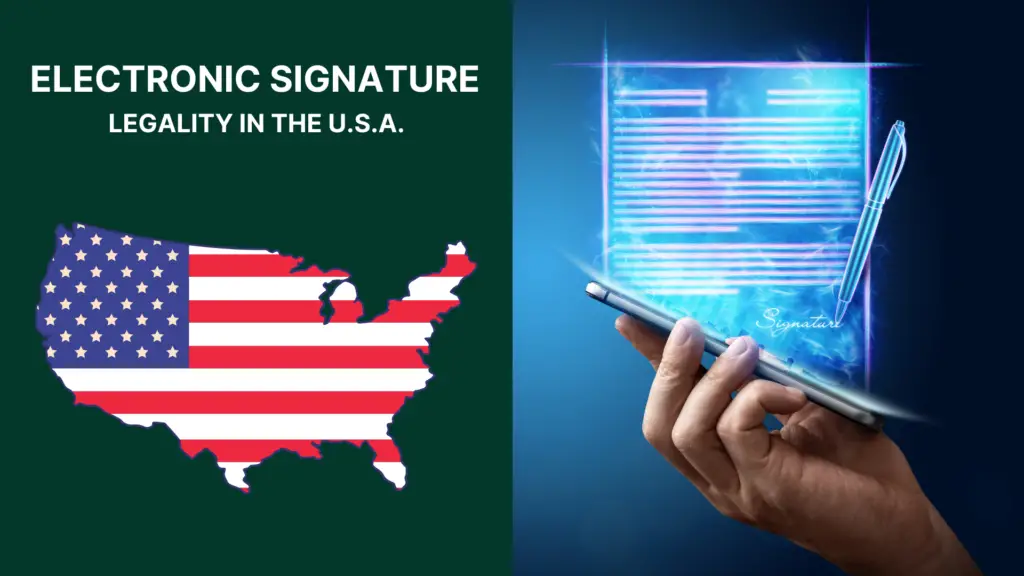
Legislation and Requirements in the United States
In the United States, e-signatures are considered legal, but they are regulated. The laws governing digital signatures in the country include the Uniform Electronic Transactions Act (UETA) and the Electronic Signatures in Global and National Commerce Act (ESIGN Act).
The ESIGN Act of 2020 allows e-signatures to be used instead of written ones. The digital ones have the same weight as the traditional signatures, even as evidence in a court of law.
It ensures that electronic signatures cannot be rejected for simply being digital. There must be other, more tangible reasons for such rejection.
However, there should be some requirements met to clarify the legality of the signatures:
- As in any other country, the intent to sign should be clear. Intent can be shown by clicking a button that represents a signature or using an input device to scribble a signature into the computer.
- There should be an explicit agreement among parties that document signing may be done electronically.
- All parties must receive a copy of the signed document. The full copy of that document should have been given to the parties before they consent to sign. The signatories should be able to download a copy of the contract or any other type of legal document.
ESIGN indicates that digital signatures are legal in all states, wherein federal law applies. As for the states that do not follow federal law, the UETA can be utilized.
UETA of 1999 expands on the regulations. It is applicable in 47 states, as well as the US Virgin Islands, Puerto Rico, and the District of Columbia.
As with other countries, the US allowances for digital signatures are regulated. Therefore, not all documents can be signed electronically. However, these signatures are considered to be accepted as evidence.

Some states have their own set of rules governing the acceptance of digital signatures.
For example, Illinois had not adopted the UETA. Instead, it has its electronic signature law. This law shows its preference for some electronic signatures over others.
It recognizes that some e-signatures are more secure than others. If the signature is considered to be protected, Illinois allows it to be used in place of traditional signatures.
In Illinois, a signature is considered secure if:
- The creation method is reasonable, given the particular circumstance
- All parties use their e-signatures in a trustworthy manner
- The trustworthiness can be verified
- All parties involved can attest that the signatures used are secure
Illinois refers to a digital signature as a secure form of e-signature that makes use of encryption. This definition is consistent with the definitions raised within this same article.
Like Illinois, New York did not adopt the UETA. Instead, it has adopted a different law, the Electronic Signatures and Records Act (ESRA). ESRA renders electronic signatures admissible in court without requiring citizens to make use of them.
The New York Office of Information Technology Services oversees the effectiveness and government efficiency in dealing with electronic signatures.
As with other territories, the legality of electronic signatures cannot be applied to wills and other documents that deal with the transfer of property.
Featured Platforms: PandaDoc, Formstack Sign, DocuSign, HelloSign
